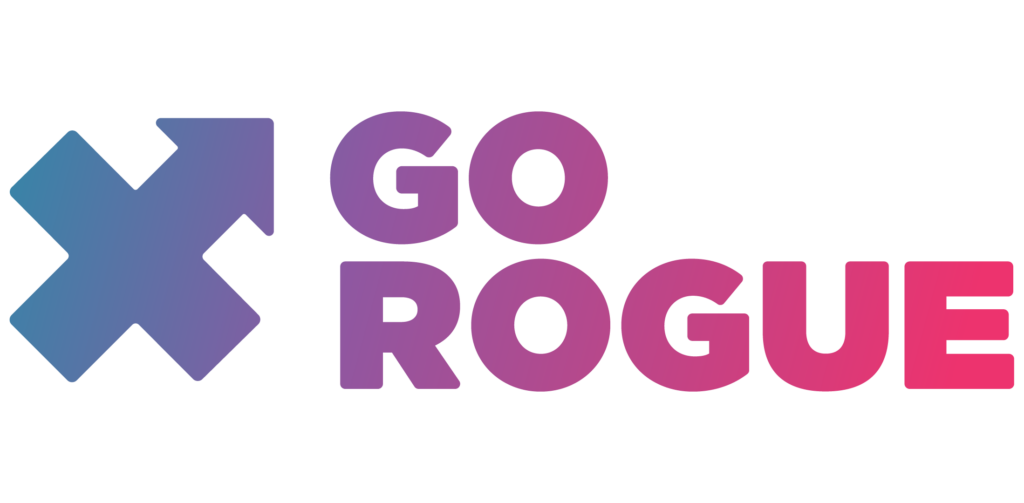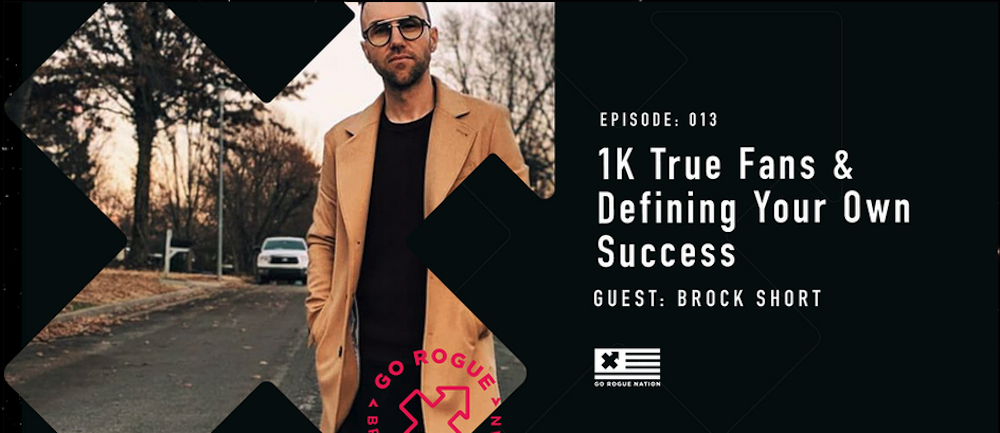What we’re obsessed with this week: Loren: Ninja Coffee Maker Bryan: Ninja Foodie Brock: Purely Elizabeth Granola
When we think about success, we’re met with so many contradicting viewpoints and measurements for this elusive entity. In business, we quickly realize that “success” can be an ever-moving finish line that we feel we must combat for the rest of our career. When will I reach my goal? When will I be approved of by my peers? When will I make “enough” money? This struggle is what the team is discussing this week.
“We work all day along, and at the end of the day you look back and you’re like ‘what did I do? Like, did I accomplish anything today? Was it successful at all?”
— BRYAN FITTIN
Loren started us out by going through some famously successful people’s interpretations of “making it” in their field. Business Insider compiled the definitions of success from John Wooden, Tony Hsieh, Maya Angelou, Winston Churchill, Richard Branson, Deepak Chopra, and more and of course, they all vary in how they apply that stamp of approval. Bryan says “We work all day along, and at the end of the day you look back and you’re like ‘what did I do? Like, did I accomplish anything today? Was it successful at all?’” So how do we answer this eternal question? There are a lot of techniques out there suggesting things like journaling our accomplishments, considering our metrics for things like engagement on social media, or checking our download count on a podcast episode, but Bryan suggests we look at these things in a different light.
If we only have 3 engagements on say, a Facebook ad, it is easy to call that a failure because we compare ourselves to companies who get thousands. Or when we track our downloads and only see 150, or only getting 50 “likes” on social media, we can be tempted to do something irrational like pull the content and try again when we feel we’re more likely to accomplish more on paper, so to speak. But Bryan reminds us to look at these measurements differently: “If you’re standing in a room with 150 people and they’re standing there listening to you and listening to you talk, that’s pretty good!” And this goes for social media engagements, copies of books sold, follower count, and everything else. It has been mentioned that we should focus on building our 1K loyal fan-base, and if we set our eyes on this metric or our own version of that, it is so important that we keep our blinders on to everything else that we are likely to compare ourselves to. “‘Only a thousand, well they have two thousand, or they have ten thousand,’ and I think part of success, well, first you have to get away from comparing yourself to other people, which is hard in today’s day and age because you can see everything [online].” Brock says in response to this idea.
“ Sure, financial gain is a major reason why we would become entrepreneurs or believe in a product or company enough to market it or sell it, but if that is the only reason, we’re missing the mark.”
— BRYAN FITTIN
Another way we can keep ourselves from getting caught up in fake measurements of success is by making sure we are not simply chasing the money. Sure, financial gain is a major reason why we would become entrepreneurs or believe in a product or company enough to market it or sell it, but if that is the only reason, we’re missing the mark. This is comparable to a movie franchise that makes sequels because there is more story to be told, vs. one that makes sequels because they are chasing box office money where there is a lack of story.* Another comparison is companies that copied the incredibly successful business model of Toms shoes, when their heart and ethics did not match Toms’ in the end.
“What is our one thing? What is our one thing as a company that we want to be good at? Not just be good at, but be the best! Is it customer service?… Is it the best products? Is it this or is it that? We can be good at all of these things, but what’s the one thing we want to be great at?”
— BROCK SHORT
Brock reminds us that to avoid these traps, we need to ask ourselves: “What is our one thing? What is our one thing as a company that we want to be good at? Not just be good at, but be the best! Is it customer service?… Is it the best products? Is it this or is it that? We can be good at all of these things, but what’s the one thing we want to be great at?” When we try to be good at everything, we’re not great at anything. That’s this whole idea of Jack of all Trades, Master of None, right? Let’s not be the company that does everything decently, let’s be the company that’s known for the thing we’re amazing at.
This is such a broad conversation, so as always, we want to point you to the corresponding episode of the Go Rogue Podcast, but Loren is so amazing at bringing everything to earth and summing it all up. Here are her 4 best questions to ask ourselves for defining our own success:
- Are we doing something we’re passionate about? Again, this points us back to not simply chasing the profits. We don’t want to wake up every morning and hate what we do. This is simply trading our happiness for financial gain, and that is never a compromise we should be willing to make.
- Are we making a difference in the atmosphere that we’re in? “This doesn’t mean that we’re on the mission field or working for a nonprofit, but are we making a difference for the people that we interact with? With our clients? Just making the world a better place, for me, is a definition of success.” (Loren Lewis)
- Are we doing something that at least gives us enough of a monetary reward that we can complete our other goals? These goals can include supporting our family, breaking even to fund our hobby-turned-side hustle, or anything else that fits OUR version of success. We would even go so far as saying that we need to write these goals down or put them in our mission statement as a constant reminder of when and how we are successful for those moments that we slip into the comparison game or are tempted to continually move our finish line back.
- Being able to have the time and energy with our families and thrive there. The ability to work to live as opposed to living to work is kind of what this chasing our dream this all about. If we are sacrificing what theoretically means the most to us, the ones we love, then none of this is worth it at all. This is a good check for all of us.
We know the factors and metrics within our industries that can help us measure success according to our pre-set guidelines like the ones above, and as long as we stay within those parameters, we can determine that for ourselves without measuring against other individuals or companies. We need to DEFINE OUR OWN SUCCESS and hold that to be true continually.
Footnotes
*Comparison Referenced on the Popcast Podcast


